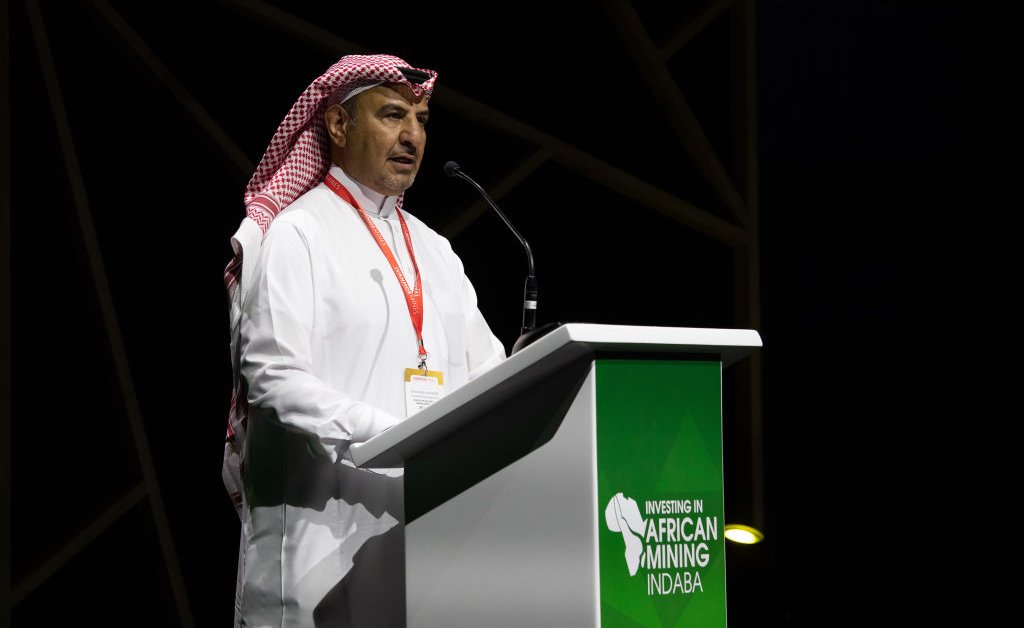Late last year, over 50 African leaders gathered in Riyadh for the first ever Saudi-Africa summit. Convened by Crown Prince Mohammed bin Salman, it brought together a mélange of democrats and dictators, reformers and kleptocrats, young go-getters and long-ruling dinosaurs. Their objective? To wangle a slice of the $40 billion Saudi Arabia plans to invest in Africa.
For the African leaders in attendance, the summit was a golden opportunity to obtain generous aid and inexpensive loans from one of the world’s richest countries. But to those tuned into geopolitics, the gathering spoke to a much bigger trend: the recent expansion of economic and political links between the Gulf petro-states and their African counterparts.
Anxious about growing Chinese and Russian influence in Africa, U.S. officials have started encouraging the United Arab Emirates, Qatar, and Saudi Arabia to play a bigger role in continental affairs. Expanded trade and investment ties between Africa and the Gulf states could bring some win-win prosperity and development. But there is also a darker dimension to Gulf states’ deepening involvement in Africa that Washington ignores at its peril—one that undercuts its stated commitment to promote democracy and good governance there.
A new scramble? Not quite
The exponential increase in Africa-Gulf connections is undeniable. In 2023 alone, Gulf states made investment pledges worth over $53 billion—almost four times more than the United States. A few decades ago, Gulf states began leveraging cultural and religious ties across North, East, and West Africa. Today, their presence is continent-wide. As investors, they bring their petro-dollars to bear in sectors like mining, commercial agriculture, and infrastructure.
Even after COVID-19 decimated air links between Africa and the rest of the world, the national airlines of several Gulf states maintain a dense network of routes all across the continent. This means African political and business elites still enjoy easy access to the Gulf’s financial and commercial hubs.
In some ways the oft-repeated Scramble-for-Africa metaphor doesn’t fit the new Gulf-Africa relations. Unlike during the colonial onslaught that took place in the late 19th century, African governments exercise plenty of agency as they forge international relationships. Instead of sending soldiers and laying claim to natural resources, outside powers are investing huge sums across Africa.
Likewise, Gulf countries are largely uninterested in interfering in African countries’ internal political affairs. Many African leaders prefer this approach to Western democracies’ finger wagging on democracy, human rights, and engaging with China and Russia. They often welcome the strictly transactional nature of their dealings with Gulf states, whose banks and dealmakers are more willing to do business in conflict- and corruption-prone areas than their Western peers.
The balance sheet of Gulf-Africa relations is a complex one. On the upside, Gulf states provide African countries with investment flows—especially in key areas like energy and infrastructure—that can help modernize their economies. Its financial centers have become an indispensable platform to service African firms as well as major foreign investors. Dubai, deemed “the New York for Africans now,” is a primary gateway for global investors who want to do business on the continent.
The downsides of the Gulf-Africa relationship, however, continue to negate many of its benefits. For example, powerful smuggling networks—especially in gold—are a major source of interregional financial flows. Much of this under-the-radar economic activity is centered on Dubai, which has become a major destination for illicit financial flows that sap the economies of countries all across Africa. The list of African oligarchs and politicians who have found safe haven in Dubai is a veritable rogues gallery of the continent.
Described as a “a loose cannon that arms warlords and spreads chaos,” the UAE has also fueled instability and humanitarian crisis on the continent by backing armed groups in Libya and Sudan. Qatar and UAE have also helped bankroll South Sudan’s ultra-corrupt regime. Saudi Arabia has likewise showered loans on the Central African Republic’s Kremlin-backed regime.
Counterweight or millstone?
Washington’s explicit support for Gulf countries’ involvement in Africa shows how much its Africa policy has changed since the end of the Obama Administration. Bruised by a series of coups in Mali, Niger, Chad, and Gabon—all longtime U.S. military partners in the Sahel region—Washington no longer seems able to articulate why African countries should partner with democracies over dictatorships.
Worse, U.S. officials have begun soft pedaling the good governance, human rights, and humanitarian concerns that once anchored their Africa policy. By overlooking how these priorities underpin African countries’ stability and prosperity, Washington has instead picked a fight with China and Russia over who has more influence on the continent this week, this month, this year. As part of this pseudo-realpolitik approach, Washington has begun nudging Gulf states to invest in Africa—particularly its strategically-important mining sector. In doing so, it has chosen to prioritize great power competition above all else.
While Washington’s myopic focus on undercutting its adversaries may yield short term gains, it will not necessarily benefit the U.S. or African countries over the long term. Instead of greenlighting a no-holds-barred scramble for the continent’s natural resources, the U.S. should leverage its deep ties to the UAE, Qatar, Saudi Arabia, and other Gulf countries to ensure that their activities bring growth and development—not corruption, smuggling, and warlordism—to Africa. Doing so would show that Washington understands that, when it comes to international partners, quality matters more than quantity.










